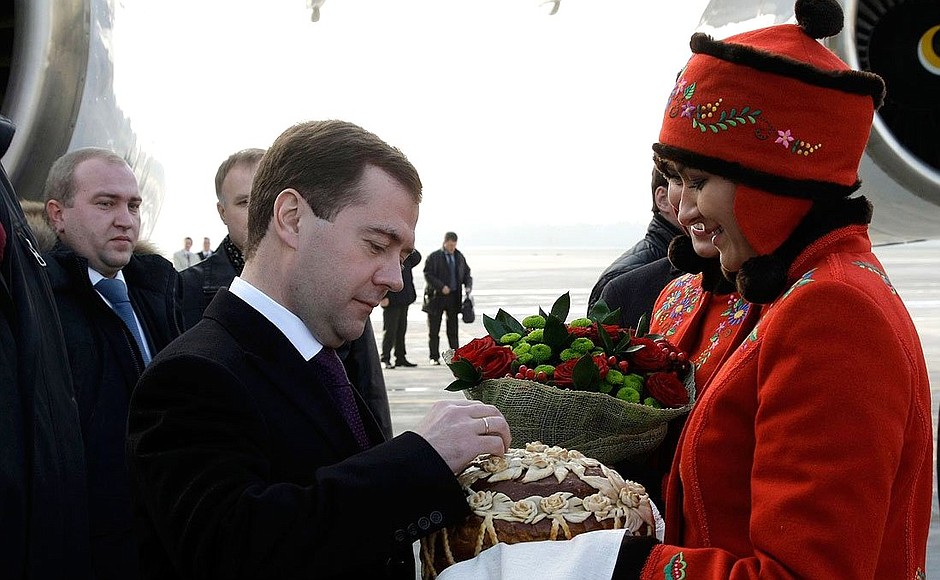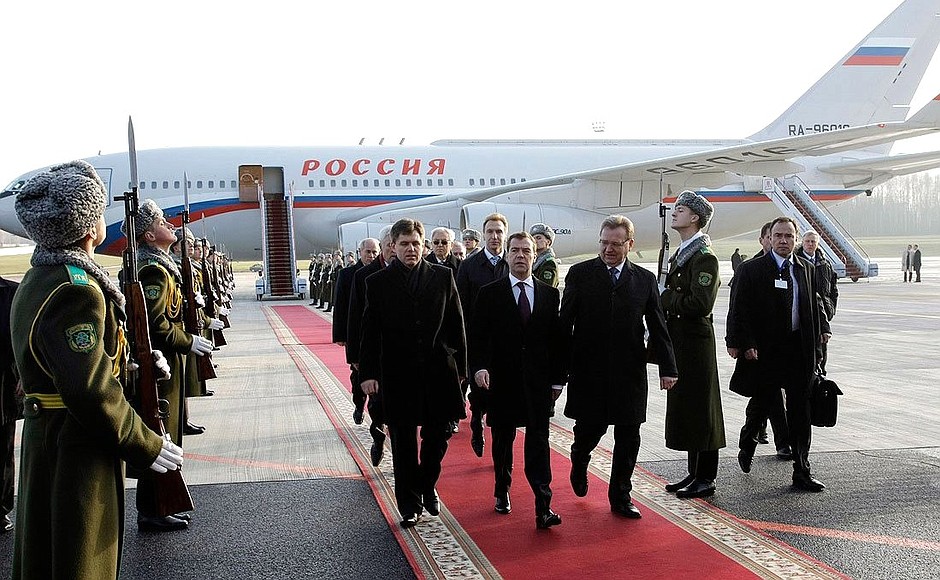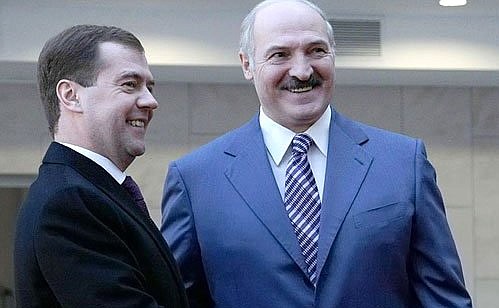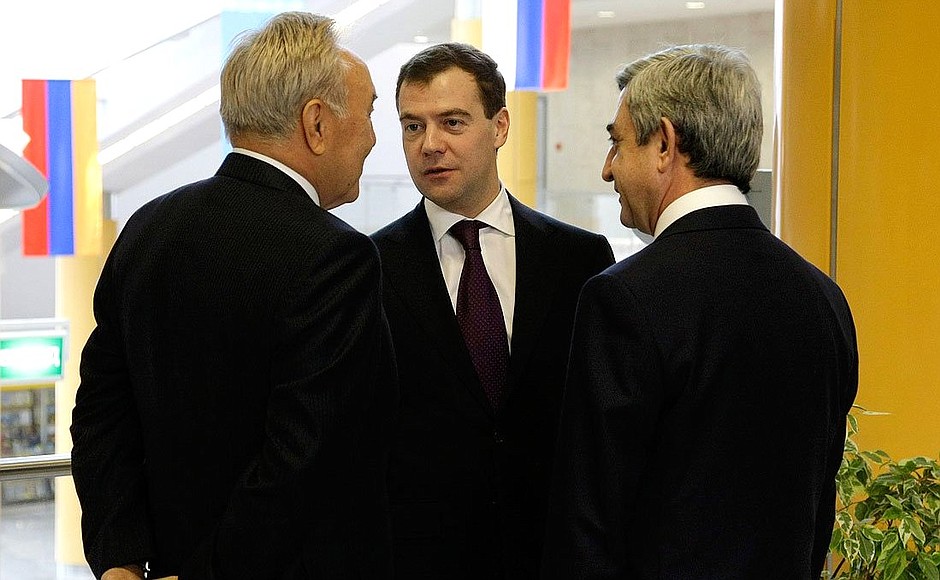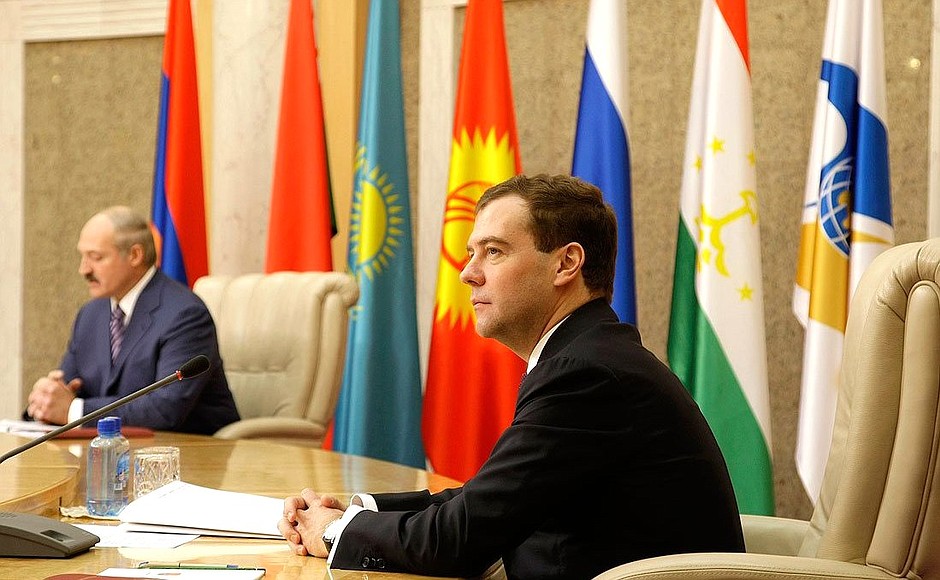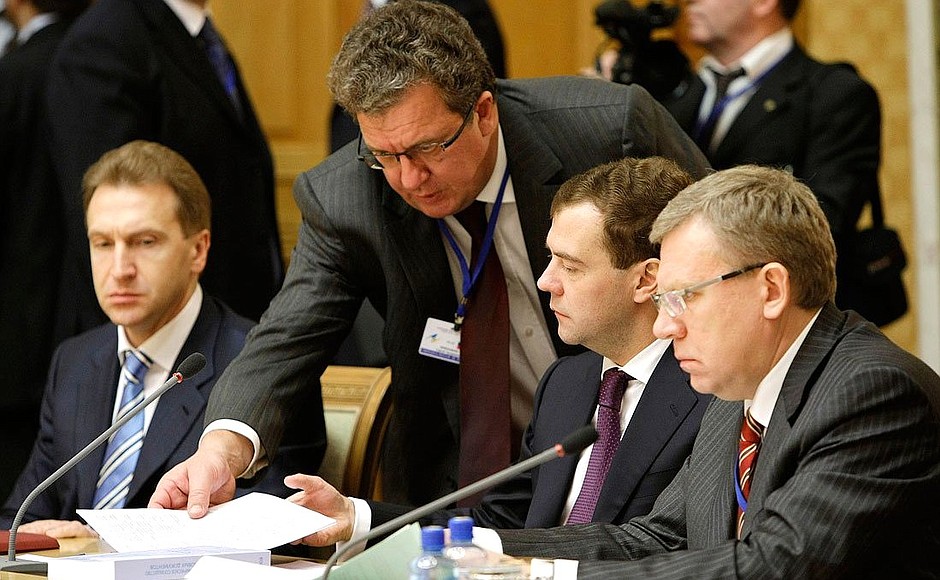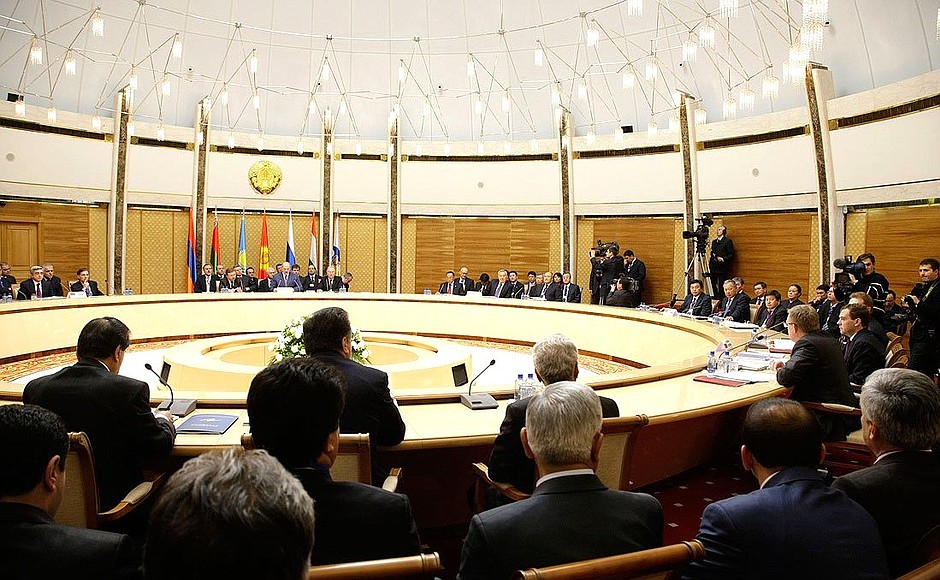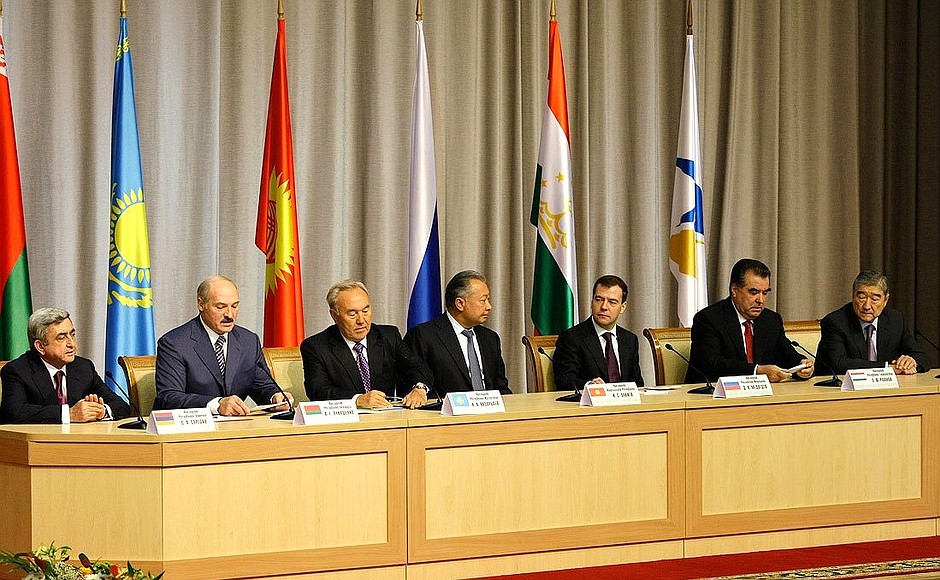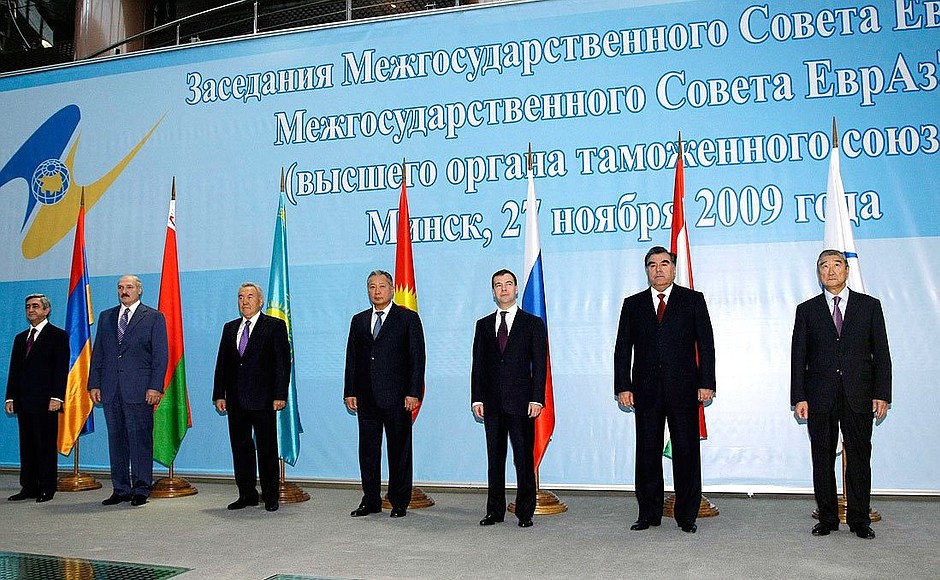The summit ended with the signature of a package of documents defining the activity of the Customs Union between three countries – Russia, Belarus and Kazakhstan, creating a new economic grouping within EurAsEC. Mr Medvedev called these decisions a milestone in this process.
The President said that the Customs Union’s development will prepare the soil for a transition to a completely new form of economic integration that will see the participant economies establish a common economic space.
Speaking at the press conference following the summit, Mr Medvedev said that the Customs Union members hope that other EurAsEC member countries will also join the union once they are ready.
The President noted that EurAsEC is practically the only organisation in the post-Soviet area that is making rapid progress towards its integration goals.
The EurAsEC Interstate Council, with Kyrgyzstan, Tajikistan and Armenia’s participation, discussed implementation of joint measures to overcome the impact the global economic crisis has had on member states, and also examined the state of progress in implementing earlier decisions on establishing the EurAsEC Anti-Crisis Fund and High Technology Centre.
Russia will pay the first part — 10 percent ($ 750 million) – of its contribution to the EurAsEC Anti-Crisis Fund by the end of the year. All of the donor countries will soon pay up to 10 percent of their contributions to the fund, set for the whole period of activity, and the fund’s council will then begin taking requests for aid allocation from countries.
EurAsEC was established in 2000 as an international economic organisation aiming to establish common external customs borders between the member states and draw up a common foreign economic policy, tariffs, prices and other components of a common market.
The current members of EurAsEC are Russia, Belarus, Kazakhstan, Kyrgyzstan and Tajikistan. Moldova, Ukraine, Armenia and the Eurasian Development Bank have observer status in the organisation.
